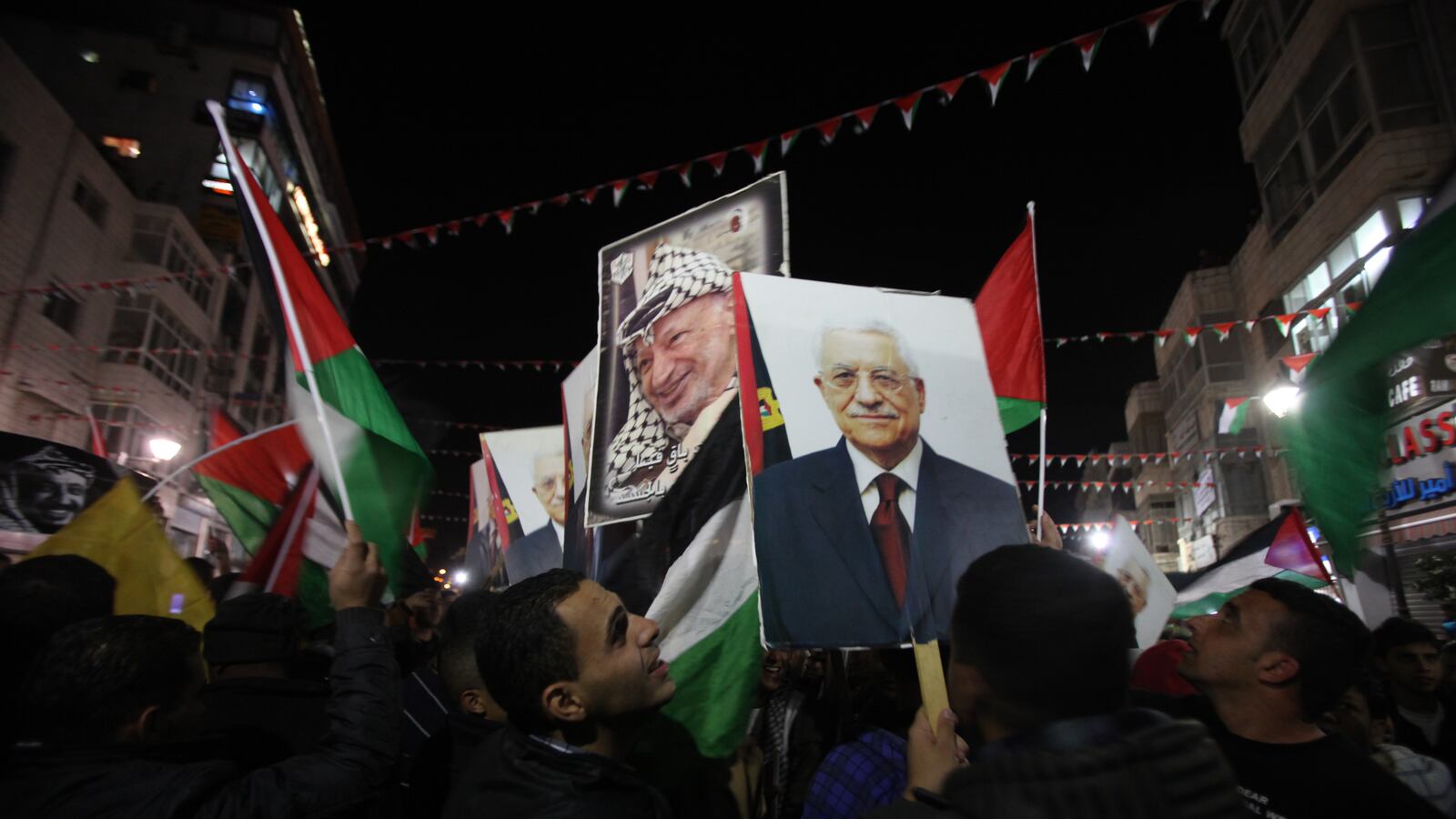
My National Post column regards the recent UN vote to recognize "Palestine."
The Palestinian Authority just scored itself a nifty victory at the United Nations. The General Assembly voted to recognize “Palestine” as a non-member observer state. That action upgrades the status of the Palestinian delegation to the UN, and could have other juridical consequences, too.
What the vote does not do, however, is move an independent Palestine any closer to existence. Palestine remains today what it was yesterday: two mutually hostile sub-national cantons, Gaza and the West Bank.
But both Gaza and the West Bank do share something in common — and no, it is not their dependence on foreign aid, although they do share that, too. Gaza and the West Bank both share an interdependence with Israel. It is impossible for either — or both — to function as a nation without Israel’s agreement and concurrence. It is Israel, not the UN, that will decide when and whether Palestine emerges as a state. It’s Israel, not the UN, that the Palestinians ought to be talking to. But that’s not what’s happening.
Yet happen it must if true peace is ever to come.
Can it happen?
I listened carefully to Mahmoud Abbas’ speech to the United Nations Thursday. It was peppered with a lot of obnoxious comments, evidently aimed at scoring points in some intra-Palestinian competition with Hamas. (Two mentions of “apartheid” in one speech? Really? Don’t they have a thesaurus in the PLO speech-writing office?) Bizarrely, the speech made no mention of the just-ended Hamas rocket war against Israel.
But it was striking to me that the speech’s overall tone was conciliatory, not provocative.
For instance: “I am here to say on behalf of the Palestinian people and the Palestine Liberation Organization: We extend our hands to the Israeli government and the Israeli people for peace-making. I say to them: Let us urgently build together a future for our children where they can enjoy freedom, security and prosperity. Let us build the bridges of dialogue instead of checkpoints and walls of separation, and build cooperative relations based on parity and equity between two neighbouring states — Palestine and Israel — instead of policies of occupation, settlement, war and eliminating the other.”
Sincere? Who knows. But it is a much more explicit statement of coexistence than was ever offered from a UN rostrum by Abbas’ predecessor.






